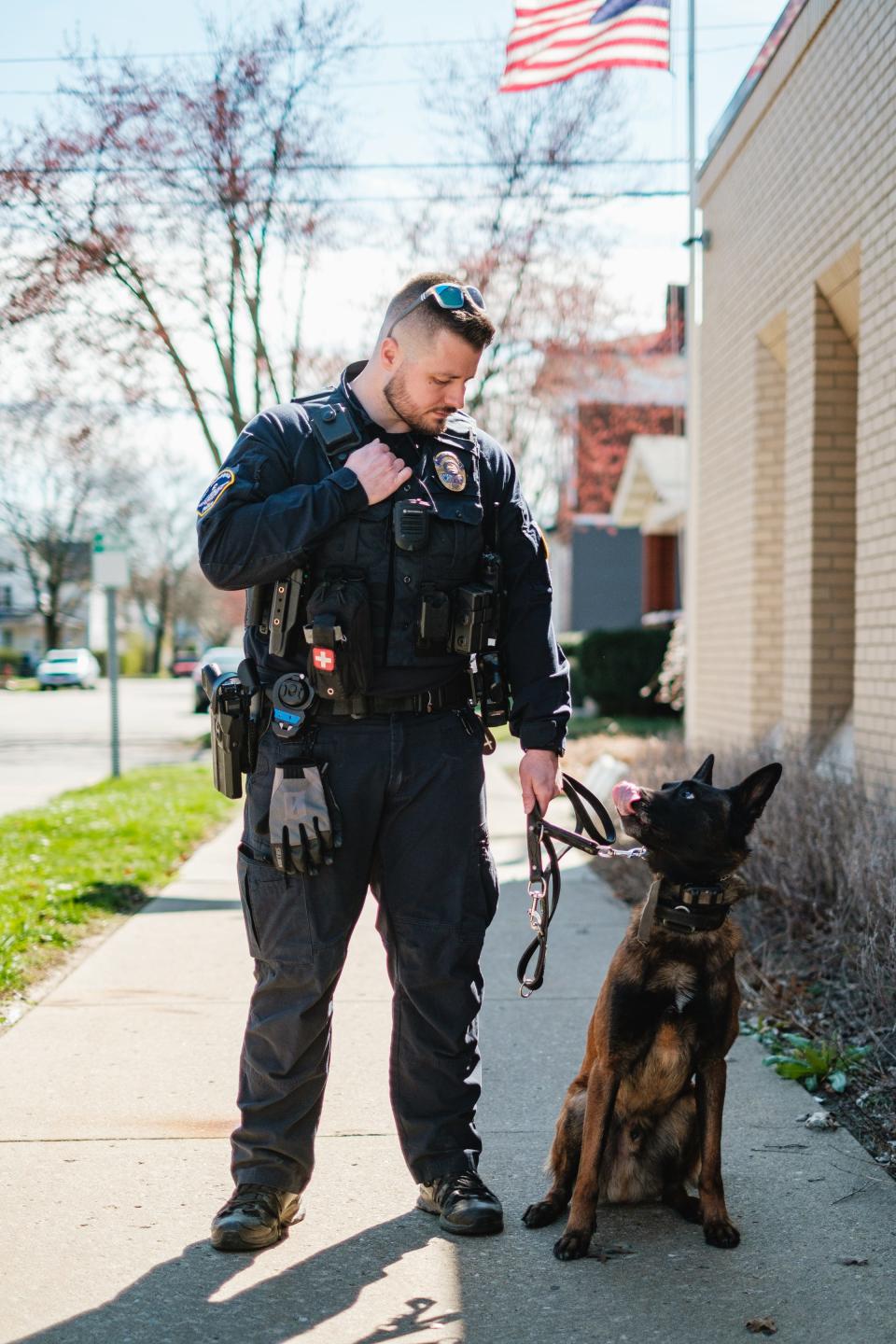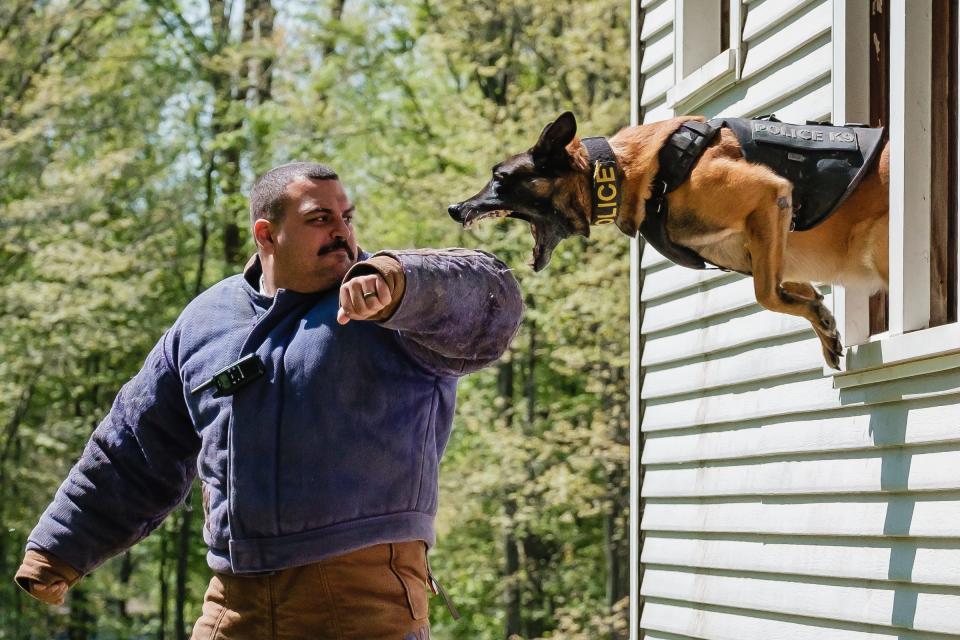Proposed House Bill 396 would help to replace Ohio K-9s that detect marijuana
TUSCARAWAS COUNTY – Will the impending change to marijuana laws in Ohio affect the K–9 division of the Tuscarawas County Sheriff’s Office or other local law enforcement agencies in Tuscarawas County?
Sheriff Orvis Campbell says it is complicated and that there is not a definitive answer just yet. The sheriff’s office currently has one K-9, Rocky, handled by Deputy Chris Edwards. Rocky is a dual-purpose dog that will sniff drugs, track people and objects, and bite a dangerous perpetrator, Campbell said.

“No one knows how the new marijuana law will change how the courts look at this. Marijuana will still remain illegal for people under 21 and above certain amounts. Prosecutors themselves disagree on this so it will likely need more clarification later by legislators and the courts. I don’t want to speak for Prosecutor (Ryan) Styer but, as of now after a discussion with him we believe we can still use the dog trained on marijuana,” Campbell said.
The primary concern is that dogs trained to detect for marijuana would threaten the admissibility of drug alerts when the cases go to court.
New Philadelphia Police Chief Tessa Pohovey indicated that neither of her department's K-9s are trained to detect marijuana, so the issue isn't relevant as it pertains to continued operations with those dogs.
There are seven K-9s currently in use in Tuscarawas County: two in New Philadelphia, one in Dover, one in Uhrichsville, one in Dennison, one in Sugarcreek and one with by the Tuscarawas County Sheriff's Office. Only Rocky with the sheriff's office and the K-9 in Sugarcreek are trained to detect marijuana.
Sugarcreek Police Department Chief Kevin Kaser said the village will be retiring its current K-9 and has recently acquired a new one. That dog is a multipurpose dog and will not be trained to sniff for marijuana. She is not yet named by the handler, but is a 9-month-old Belgian Malinois. Kaser said that he would apply for funds if HB 396 is approved.
Unintended consequences
Is it possible for a K-9 officer to be retrained to not detect marijuana? Experts say no.

As a direct result of the passage of Issue 2 last fall, nearly 400 police dogs in Ohio trained to detect marijuana could be retired because retraining is just not possible due to the unintended consequence of decriminalization of marijuana possession and consumption.
As a result, state Reps. Sean P. Brennan, a Democrat from Parma, and Josh Williams, a Republican from Sylvania, have co-sponsored House Bill 396, which would pay law enforcement departments up to $20,000 to offset the cost of acquiring, training, and equipping new dogs that will not alert to the smell of marijuana.
Issue 2 legalized and provided for the regulation of recreational marijuana for adults aged 21 and above, including cultivation, processing, sale, purchase, possession, and home growth. Under the initiative, adults are allowed to possess up to 2.5 ounces of marijuana and up to 15 grams of marijuana concentrates. Additionally, individuals are allowed to cultivate up to six marijuana plants at home, while households can cultivate up to 12 plants collectively.
T-R staff photographer Andrew Dolph can be reached by phone at, 330-289-6072, or by email at adolph3@gannett.com. You can also find him on Instagram @dolphphoto.
This article originally appeared on The Times-Reporter: Ohio bill would help law enforcement replace K-9s who detect marijuana

